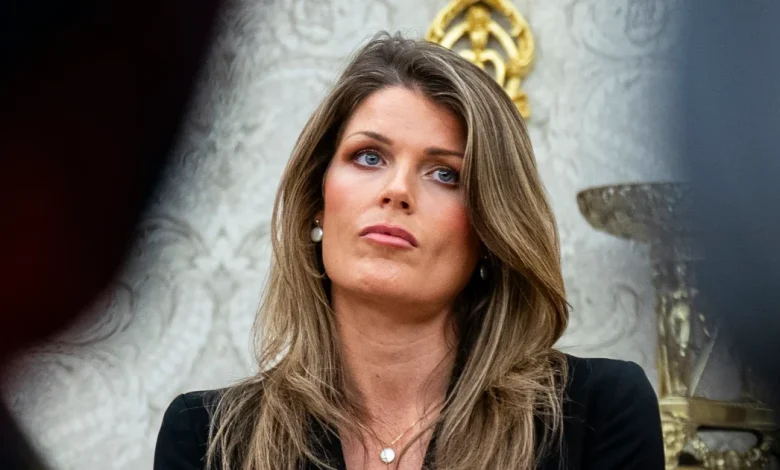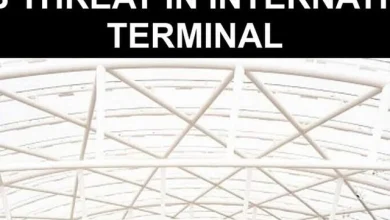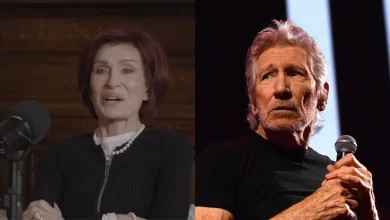Judge dismisses cases against James Comey and Letitia James after finding prosecutor was unlawfully appointed

A federal judge dismissed the criminal indictments against former FBI Director James Comey and New York Attorney General Letitia James after finding the prosecutor who brought the cases, former Trump attorney Lindsey Halligan, was not lawfully appointed.
“I agree with Mr. Comey that the Attorney General’s attempt to install Ms. Halligan as Interim U.S. Attorney for the Eastern District of Virginia was invalid. And because Ms. Halligan had no lawful authority to present the indictment, I will grant Mr. Comey’s motion and dismiss the indictment,” U.S. District Judge Cameron Currie wrote in her ruling, finding the indictment should be tossed because the appointment of former Donald Trump personal lawyer Lindsey Halligan was invalid and she’d lacked the authority to present a case to a grand jury.
“All actions flowing from Ms. Halligan’s defective appointment, including securing and signing Mr. Comey’s indictment, were unlawful exercises of executive power and are hereby set aside,” the judge wrote, describing the insurance lawyer as “a former White House aide with no prior prosecutorial experience.”
She issued a separate, similar ruling dismissing the James case.
“This case presents the unique, if not unprecedented, situation where an unconstitutionally appointed prosecutor, ‘exercising power [she] did not lawfully possess,’… acted alone in conducting a grand jury proceeding and securing an indictment,” the ruling said.
Because Halligan, who was appointed interim U.S. attorney for the Eastern District of Virginia at Trump’s direction, was the only prosecutor to present the cases and sign the indictments, the indictments should be voided, the judge found.
James praised the ruling in a statement.
“I am heartened by today’s victory and grateful for the prayers and support I have received from around the country. I remain fearless in the face of these baseless charges as I continue fighting for New Yorkers every single day,” the statement said.
Both indictments were dismissed “without prejudice,” meaning they could be brought again at a later time.
The invalidation of Halligan’s appointment was fatal to the Comey and James indictments because of the unique role Halligan played in the cases against two of Trump’s political enemies, but it could have ripple effects on other cases that were handled under more typical processes.
A similar ruling disqualifying Alina Habba as the New Jersey U.S. Attorney has resulted in a number of criminal cases brought under her leadership being stuck in legal limbo while she appeals the decision.
Currie seemed largely skeptical of the Justice Department’s position at a rare joint hearing on the issue with lawyers for Comey and James on Nov. 13, where a prosecutor portrayed questions about Halligan’s appointment as “a paperwork error.”
Comey’s attorney said it was much more than that, and a “fatal flaw” in the prosecution of his client.
James Comey has argued that the case against him was vindictive and personal. Dia Dipasupil / Getty Images
Comey was indicted on charges of making a false statement to Congress and obstructing a congressional investigation, while James was indicted on charges of bank fraud and making a false statement to a financial institution. Both have pleaded not guilty.
In a highly unusual move, Halligan was the lone prosecutor to present their cases to the grand jury and the lone prosecutor to sign their indictments. Other prosecutors in her office had recommended against charging Comey and James because they didn’t believe there was enough evidence to secure convictions, NBC News previously reported.
Trump said he was naming Halligan U.S. attorney for the Eastern District of Virginia on Sept. 20 — the day after he forced out his initial pick, Erik Siebert. Siebert had resisted pressure to prosecute Comey and James.
Halligan’s appointment was immediately viewed as problematic because, according to federal statute, people in that post may only serve for 120 days after being appointed U.S. attorney, unless confirmed by the Senate before then.
The Senate had not confirmed Siebert, so federal judges of the Eastern District of Virginia exercised their independent appointment authority to keep him on beyond the 120-day limit.
New York Attorney General Letitia James.Michael M. Santiago / Getty Images file
Lawyers for Comey and James contended that after Siebert was forced out, the responsibility for naming his replacement belonged to the judges, not Attorney General Pam Bondi. To rule otherwise, Comey’s attorney said in a filing, would render the 120-day period “meaningless, and the Attorney General could indefinitely evade the alternate procedures that Congress mandated.”
The Justice Department maintained that Halligan’s appointment was valid since the office was vacant after Siebert’s departure. The “Senate has not refused advice and consent to Ms. Halligan — her nomination remains pending. The Attorney General therefore lawfully appointed Ms. Halligan as interim U.S. Attorney” and “the motions to dismiss should be denied,” the Justice Department said in a filing.
Trump’s Truth Social post naming Halligan to the position came the day after Siebert was forced out — and shortly after another social media post where he publicly urged Bondi to push ahead with prosecutions of Comey, James and perceived political adversary, Democratic Sen. Adam Schiff of California.
“Pam: I have reviewed over 30 statements and posts saying that, essentially, ‘same old story as last time, all talk, no action. Nothing is being done. What about Comey, Adam “Shifty” Schiff, Leticia??? They’re all guilty as hell, but nothing is going to be done,’” said the post, which a source previously confirmed to NBC News had been intended as a direct message to Bondi, not a public post.
“We can’t delay any longer, it’s killing our reputation and credibility,” Trump continued, while praising Halligan as “a really good lawyer.”
Five days after the post, Halligan, who had no prosecutorial experience, presented the Comey case to a grand jury. The presentation came days before a five-year statute of limitations on the charges was set to expire.
Currie, a Bill Clinton appointee who is based in South Carolina, heard the arguments on the disqualification issue instead of a judge from the Eastern District of Virginia since local judges would be involved in selecting Halligan’s replacement.
Comey and James have other motions pending before the judges presiding over their cases, contending the charges should be dismissed because they are the result of a “selective and vindictive” prosecution.
The Trump administration’s stance on the 120-day rule has led to U.S. attorneys in California and Nevada being disqualified as well. The Justice Department is appealing those rulings.




